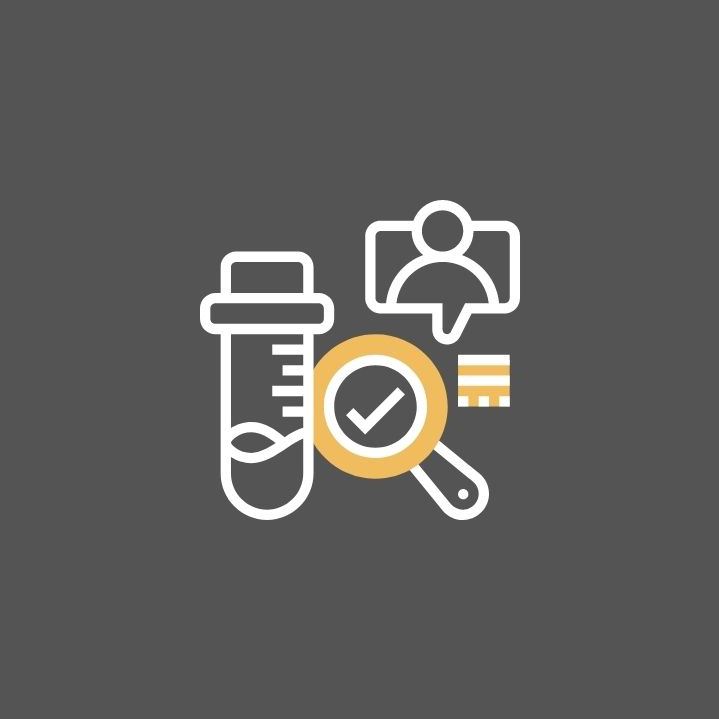Tests & Results
Results of Tests and Investigations
Please be aware that it is the patients’ responsibility to telephone the surgery between 12:30 – 16:00 for test results.
Please note that the practice has a strict policy regarding confidentiality and data protection and we will only release test results to the person to whom they relate unless that person has given prior permission for the release of this data or they are not capable of understanding the results.
When you take your test you will be told how long it will be before the results are returned to the practice. Blood test results normally take approximately five days to arrive, for other tests you will be advised at the time of taking the tests.
It is your responsibility to check your results and to make an appointment to discuss them with your doctor if you are advised to do so.

Specimens
Urine specimens for laboratory testing can be left at reception up to 11:30 each day for collection that day. The specimen must be clearly marked with the patient’s name and date the specimen was taken.
Specimens may be rejected by the Surgery / Hospital if these 2 simple rules are not adhered too.
The specimens will be collected by NHS courier and taken to the Hospital Pathology Department.
Specimen containers are available free of charge from our reception. Specimens must only be provided in the proper container and should be sealed in the envelope provided before being left with the receptionist.
Occasionally accidents do happen with samples en route or in the laboratory and you may be asked to supply a fresh sample if this happens.
Blood Tests
Preparations for blood tests
You can eat and drink as normal before some blood tests. However, for others you may be given specific instructions so that the test results aren’t affected, for example, not to eat and sometimes not to drink before your test (known as a fasting blood test).
Below are some examples of different blood tests and what you may need to do to prepare for them, including how long you may need to fast. However, you should also follow any instructions from your healthcare professional.
Fasting blood glucose test
Do not eat or drink anything except water for 8-10 hours before a fasting blood glucose test. These are used to diagnose diabetes, a condition caused by too much glucose (sugar) in the blood.
Iron blood test
Iron blood tests are usually taken in the morning before you eat anything. You should also avoid taking iron pills or tablets for 24 hours before your test. Your body absorbs iron very quickly from food or pills, so this can raise your iron levels and affect the test results.
Iron blood tests help diagnose conditions such as iron deficiency anaemia (lack of red blood cells caused by low iron levels).
Blood cholesterol tests (lipid profile)
Do not eat anything and only drink water for 10-12 hours before having blood cholesterol tests (lipid profile).
There are several different cholesterol tests. When these are done together it’s called a lipid profile. A lipid profile tests the levels of:
- ‘good’ (HDL) cholesterol
- 'bad’ (LDL) cholesterol
- total cholesterol
- triglycerides (other fatty substances)
Some laboratories can calculate your LDL cholesterol level from your total cholesterol, triglycerides and HDL levels. However, you will still need to fast for these tests. If you do not need to fast, your healthcare professional will let you know.
If you’re just having a triglycerides test, do not drink alcohol for 24 hours before the test (you’ll also need to fast as explained above).
X-Rays
An X-ray is a widely used diagnostic test to examine the inside of the body. X-rays are a very effective way of detecting problems with bones, such as fractures. They can also often identify problems with soft tissue, such as pneumonia or breast cancer.
If you have an X-ray, you will be asked to lie on a table or stand against a surface so that the part of your body being X-rayed is between the X-ray tube and the photographic plate.
An X-ray is usually carried out by a radiographer, a healthcare professional who specialises in using imaging technology, such as X-rays and ultrasound scanners.
You can find out more about x-ray tests, how they are performed, their function and the risks by visiting the NHS Choices website.